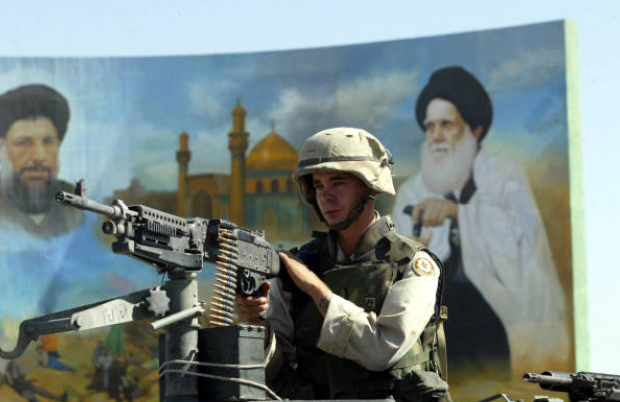International Political Economy and Economic Diplomacy: An Interdisciplinary Approach to Economic Methodology
Introduction
The interdisciplinary approach to research analysis of the innumerable political and socio-economic issues constitutes a fundamental feature for a more competent understanding and consequent response. While modern mathematically driven economic theory aims at accurately interpretating global macroeconomic phenomena, the embedded social and political nature of economics pale into insignificance over the straightforward extrapolation of conclusions offered by mathematical and statistical methods. Focusing on the ‘behavior and interactions of autonomous individuals and enterprises responding to impersonal market signals’ (Gilpin, 2001, 61), economics neglect the role of the state in the domestic and international economic environment (Gilpin, 2001).
The purpose of this study is to provide a coherent explanation of International Political Economy, a field that deals with ‘the relationships between countries in trade, money, capital, and migration which also entails the relationship within each country between domestic and international interests’ (Daunton, 2018, 605). The global economic interdependence between states constitutes an essential incentive for the extensive study of the practical dimensions of International Political Economy, a discipline that provides a wealth of skills for a more holistic interpretation of economic phenomena. In this essay, the main theoretical approaches of International Political Economy are presented, with references to the interpretation of actual political and economic phenomena from the perspective of each. It then discusses the size, structure, and interests of an economy as determinants of the foreign policy of states and diplomatic practices, resulting in the emergence of Economic Diplomacy as a key manifestation of the diplomatic power of a nation-state in the international arena.
The structure of the article continues as follows: Section 2 analyses the economic and political methodology of the two main theoretical approaches to International Political Economy. Section 3 discusses the importance of Economic Diplomacy as a means for states to exert influence on the global economy. Section 4 provides concluding remarks.
Theoretical Approaches to International Political Economy
The Realist Approach
The pillar theory of Realism has influenced world politics at a paramount level. Many purport that before there was even a distinguishable subject matter of International Relations, states’ diplomatic and military practices conformed to the principles that would later be discerned as Realism (Baylis et al., 2020). As far as human nature is concerned, realist thought discusses that humans are characterised as being preoccupied with their own well-being in their competitive relations with each other and subsequently possessing the desire to ‘enjoy an advantage over others and to avoid domination by others’ (Jackson & Sørensen, 2013, 66). Contemporary realists, influenced by prominent figures of modern Realism Niccolò Machiavelli (1469-1527) and Thomas Hobbes (1588-1679), argue that ‘people are essentially selfish and competitive, meaning that egoism is the defining characteristic of human nature and the state-system operates in a context of international anarchy, in that there is no authority higher than the sovereign state’, a concept of a world government (Heywood, 2014, 56).
Realism in International Political Economy is rooted in the theory and practices of Neo-mercantilism. Neo-mercantilism originates from the doctrine of Mercantilism, which dominated economic thought from the 16th to the 18th century and briefly dealt with government practices on encouraging the nation’s exports while hindering imports (Salvatore, 2013) with protectionist policies. Nations perceived that these practices would lead to their strengthening in the global arena. Therefore, Neo-mercantilists perceive the international economy as ‘an arena of conflict between opposing national interests, rather than an area of cooperation and mutual gain (Jackson & Sørensen, 2013, 162). In this way, Neo-mercantilist perception of international relations being a zero-sum game fall in line with those of the realism supporters (Cohn, 2012).
An essential argument of the realist approach is the “Hegemonic Stability Theory”, which claims that ‘A hegemon, a dominant military and economic power, is necessary for the creation and full development of a liberal world market economy because, in the absence of such a power, liberal rules cannot be enforced around the world’ (Jackson & Sørensen, 2013, 180). This theory is partly accepted by the liberal perspective but with a more ‘benevolent’ strategy of state leadership, as opposed to the exploitative hegemonic nature that realism deals with. Realists believe that a hegemonic state has its national interest at the expense of other states as its goal, and to achieve this, it can engage in all kinds of protectionist policies to cut off international trade and foreign direct investment if it claims that it will contribute to national income and political power. Examples of hegemonic conditions are Britain during the 19th century and the United States after World War II.
The realist approach sets politics and political security as its main priority over the economy, which it considers a creation of the state (Cohn, 2012). Economic activity is seen in the larger context of increasing state power (Jackson & Sørensen, 2013), marginalising economic issues unrelated to its service. Realists conceive globalisation as a process that prevails because states -particularly sovereign states – allow it to prevail, using it to advance their power and interests (Cohn, 2012).
The Liberal Approach
Liberalism is sometimes portrayed as the ‘ideology of the industrialised West’, inextricably connected with Western civilisation (Heywood, 2014, 65). Contrary to Realism proponents, Liberal thinkers emphasise that there is a moral dimension to human nature, reflected in the doctrine of human rights. They characterise people as self-reliant, governed by reason and personal improvement, and this culminates in the initiation of a competitive climate of self-interest, which will be circumscribed by an underlying belief in a harmony of interests and a preference for conflict resolution through dialogue and negotiation (Heywood, 2014). Through the struggle to defend their self-interest, individuals, groups, or states will contribute to the formation of an international system that will result in a natural equilibrium.
Liberalism has been the most influential theory in International Political Economy. Liberals adopt a “bottom-up” view of politics in which ‘the demands of individuals and societal groups are treated analytically prior to politics’ (Moravcsik, 1997, 517). The presence of an unregulated market economy free from state influence, in which the hyper-rationalist and mathematically tractable (Ravenhill, 2014) economic agents pursue their own self-interest, will – as supporters of Orthodox Liberalism argue – lead to a long-term equilibrium. On the other hand, a handful of self-identified liberals accept a greater degree of state intervention and deplore the narrow focus on the unregulated market free from state influence, as the latter does not always produce universal benefits, culminating in the potential acceptance of interventionist policies as a practical necessity to promote greater equality and fairness (Borre & Viegas, 1995). These liberals advocate the doctrine of Liberal Interventionism which is based on the ‘belief that government authorities can effectively steer a “middle way” between laissez-faire capitalism and collectivist central planning, giving rise to the so-called mixed economy’ (Ikeda, 2015, 393) A prominent interventionist liberal was John Maynard Keynes (1883-1946), who argued that the state should regularly intervene in the economy through expansionary fiscal policies in cases of underutilised capital and labour and ultimately in cases of reduced demand and production.
At the international level, the economy is perceived as a positive-sum game, where states cooperate for mutual benefit (Jackson & Sørensen, 2013). Most liberal economists are optimistic in regard to the current structure of international economic relations as expressed within the IMF and the WTO. This category of liberals is known as Liberal Institutionalists, supporting that institutions and rules can facilitate mutually beneficial cooperation – within and among states.
The “Interdependence Theory” emphasises that cooperation between states results in mutual benefits and that the development of trade and economic relations is in the interest of the transacting states. Progress in transport, communications, and technology culminate in the assurance of economic interdependence which ‘negates the sharp distinction between internal and external policies’ while market forces gradually confine the ability of nation-states to achieve their desired aims, regardless of their formal retention of sovereignty (Cooper, 1972), with the latter being unable to halt the process of globalisation. Nevertheless, the liberal perspective has been criticised by many realists who assert that ‘unfettered economic exchange can undermine national security’ (Mansfield & Pollins, 2009).
Liberal thinkers of International Political Economy tend to separate the economy from politics. Orthodox liberals believe that the government should not interfere in economic transactions and that its role should be limited to providing an open locale where individuals can freely maximise their economic interests. On the other hand, interventionist liberals, who accept a greater degree of state intervention, criticise this view, arguing that the market is off and on unstable as far as demand and production are concerned.
The instrument of Economic Diplomacy for the conduct of the foreign policy of states.
Diplomacy is the most widespread instrument of foreign policy managed by states in the international system. Diplomatic practices include formal dialogue between states and international organisations, negotiation at the bilateral or multilateral level to reach an agreement, and the elicitation of reliable information. On account of the increasing interdependence of states in the economic sphere, the geopolitical nature of the international system has changed to such an extent that it has become essential for “Economic Diplomacy” to be conducted aiming at fostering the economic interests of states and the conclusion of pivotal multilateral agreements. Economic diplomacy activities include fiscal and monetary policies, policies on economic development, and local and transnational negotiations on trade agreements. It is safe to argue that the strength of the economy is a paramount quality for a nation’s negotiating power. Thus, economically developed nation-states with negotiating power in international organisations have the ability to hold significant sway in shaping global economic progress, either through Foreign Direct Investments or by adjusting their tariff policies in the context of international trade. The Article XX of the General Agreement on Tariffs and Trade (GATT) 1994 stipulates that ‘nothing in this Agreement shall be construed to prevent the adoption or enforcement by any contracting party of measures’ to accommodate a range of government policies that may nevertheless conflict with international trade (WTO, 2002, 455).
European Union’s Single Market is a distinctive exemplar of economic diplomacy, being the dominant aspiration for structuring the sui generis organisation from the initial stages of the Treaty of Rome in 1957 and a central element in the European integration process. It has been
accomplished not only through the elimination of barriers to the flow of goods, services, capital, and labour but also by a corresponding range of measures to regulate economic activity within and across borders (Smith, 2010). This revolutionary cooperative agreement exerts significant influence on multilateral economic and political negotiations, offering numerous advantages to both strong and weaker European countries. As far as the free movement of labour is concerned, ‘the idea of European equality has become a legal claim which guarantees equal opportunities on the job market’ (Gerhards, 2008).
Conclusion
Undoubtedly, the most important conclusion that emerges from the analysis is the fact that it is rather impractical to study one discipline without taking into consideration the existence of the other (economics and politics). International Political Economy argues that the boundaries between them have become blurred and that both areas interact to form a new level of analysis for economists and political scientists. On their behalf, International political economy theorists try to transcend the limitations of the current boundaries between disciplines. Realists and proponents of modern Neo-mercantilism criticise economists for being overly interested in economics and under-interested in politics. On the other hand, many liberal thinkers criticize political scientists for paying too much attention to politics over economics. Thus, the desideratum is the existence of a ‘balance point’ at which the two interdependent social sciences mutually formulate policies and decisions to maximise state and domestic consumer interests.
The economic interdependence between states is necessary for global development, either in the context of regional organisations such as the European Union or global intergovernmental organisations such as the World Trade Organisation. Furthermore, it is a factor for the necessary understanding of theories and techniques of international economic negotiations in the context of diplomatic agreements by economists and political scientists. In the extroverted political-economic system of the 21st century, multilateral agreements are highly beneficial for every
country, and only a high-level negotiating power, expressed by immensely skilled economists and political scientists, can give impetus to their implementation.
Bibliography
Baylis, J., Smith, S., & Owens, P. (2020). The Globalization of World Politics: An Introduction to International Relations (Eighth ed.). Oxford: Oxford University Press.
Borre, O., & Viegas, J. M. (1995). Government Intervention in the Economy. In O. Borre, & E. Scarbrough (Eds.), The Scope of Government (pp. 234–280). Oxford: Oxford University Press.
Cohn, T. H. (2012). Global Political Economy: Theory and Practice (Sixth ed.). Pearson Education, Inc.
Cooper, R. N. (1972). Economic Interdependence and Foreign Policy in the Seventies. World Politics, 24(2), 159-181.
Daunton, M. (2018). International Political Economy. In I. Cardinale, & R. Scazzieri (Eds.), The Palgrave Handbook of Political Economy (pp. 605-656). Palgrave Macmillan London.
Gerhards, J. (2008). FREE TO MOVE?: THE ACCEPTANCE OF FREE MOVEMENT OF LABOUR AND NON DISCRIMINATION AMONG CITIZENS OF EUROPE. European Societies, 10(1), 121-140.
Gilpin, R. (2001). Global Political Economy: Understanding the International Economic Order. Princeton, New Jersey: Princeton University Press.
Heywood, A. (2014). Global Politics (Second ed.). London: Palgrave Macmillan.
Ikeda, S. (2015). Dynamics of Interventionism. In C. J. Coyne, & P. Boettke (Eds.), The Oxford Handbook of Austrian Economics (pp. 393–416). Oxford: Oxford University Press.
Jackson, R., & Sørensen, G. (2013). Introduction to International Relations: Theories and Approaches (Fifth ed.). Oxford: Oxford University Press.
Mansfield, E. D., & Pollins, B. (2009). Interdependence and Conflict: An Introduction. In E. D. Mansfield, & B. M. Pollins (Eds.), Economic Interdependence and International
Conflict: New Perspectives on an Enduring Debate (pp. 1-28). United States of America: University of Michigan Press.
Moravcsik, A. (1997). Taking Preferences Seriously: A Liberal Theory of International Politics. International Organization, 51(4), 513-553.
Ravenhill, J. (2014). Global Political Economy (Fourth ed.). Oxford: Oxford University Press.
Salvatore, D. (2013). International Economics (Eleventh ed.). John Wiley & Sons, Inc.
Smith, M. P. (2010). Single market, global competition: regulating the European market in a global economy. Journal of European Public Policy, 17(7), 936–953.
WTO. (2002). THE LEGAL TEXTS: THE RESULTS OF THE URUGUAY ROUND OF MULTILATERAL TRADE NEGOTIATIONS. WTO Publications.





